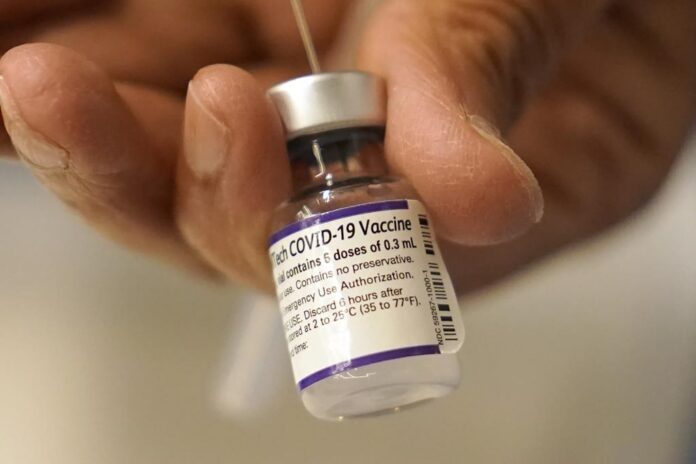An expert group convened by the World Health Organization said Tuesday it “strongly supports urgent and broad access” to booster doses, in a reversal of the U.N. agency’s previous insistence that boosters weren’t necessary and contributed to vaccine inequity.
In a statement, WHO said its expert group concluded that immunization with authorized COVID-19 vaccines provide high levels of protection against severe disease and death amid the global circulation of the hugely contagious Omicron variant.
It said vaccination, including the use of boosters, was especially important for people at risk of severe disease.
Last year, WHO’s director-general Tedros Adhanom Ghebreyesus called for a moratorium on booster doses while dozens of countries embarked on administering the doses, saying rich countries should immediately donate those vaccines to poor countries instead. WHO scientists said at the time they would continue to evaluate incoming data.
Trending Stories
Mayor of B.C. town near Alberta border calls for end of mask mandate, vaccine card
Putin critic Navalny assists Canada in latest list of Russian sanctions, Trudeau says
Numerous scientific studies have since proven that booster doses of authorized vaccines help restore waning immunity and protect against serious COVID-19. Booster programs in rich countries including Britain, Canada and the U.S. have been credited with preventing the surge in omicron infections from spilling over into hospitals and cemeteries.
Fully vaccinated Canadians who get COVID-19 can get booster 3 months after positive test: NACI – Feb 4, 2022
WHO said it is continuing to monitor the global spread of omicron, including a “stealth” version known as BA.2, which has been documented to have re-infected some people after an initial case of omicron. There’s mixed research on whether it causes more severe disease, but vaccines appear just as effective against it.
WHO noted that the current authorized COVID-19 vaccines are all based on the strain that was first detected in Wuhan, China more than three years ago.
“Since then, there has been continuous and substantial virus evolution and it is likely that this evolution will continue, resulting in the emergence of new variants,” the agency said. It added that coronavirus vaccines would likely need to be updated.
© 2022 The Canadian Press



